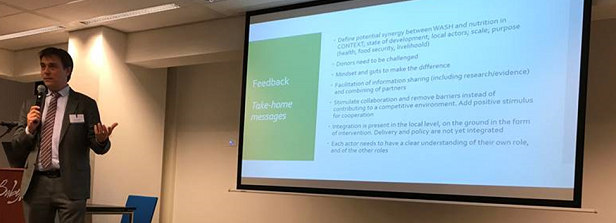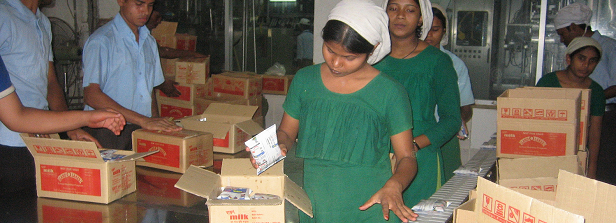Nutrition Security

Prevalence of undernutrition
Undernutrition is a consequence of consuming too few essential nutrients. Consequently, the body does not get the right amount of vitamins, minerals, and other nutrients it needs to develop and maintain healthy tissues and organ functions. This has negative effects on physical and cognitive development, especially in the first 1,000 days after conception and the effects are likely irreversible. Furthermore, undernutrition also makes children and adults more susceptible to health problems and magnifies the effects of disease. It is an underlying cause for roughly half of all deaths from diarrhea, malaria, pneumonia and measles. According to the UN Food and Agriculture Organization (FAO), globally 842 million people were suffering from chronic undernourishment in 2011-2013. Poor nutrition leaves some 165 million children stunted worldwide and plays a role in at least five million child deaths each year.
Nutrition Security at F&BKP
Although the number of hungry people in Africa grew with nearly 20 million in the last few years, there is evidence that suggests that it is possible to successfully address malnutrition in developing countries and emerging economies. In Asia and the Pacific as a whole, where 70% of all malnourished children live, the number of undernourished people decreased from 739 million to 529 million between 1991 and 2011-2013, mainly due to socioeconomic progress.
At the same time, a range of promising interventions exist. In 2013, research by The Lancet found that potentially nearly 15% of the deaths of children under 5 years of age could be reduced if the ten core nutrition interventions they identified are scaled up.
There are challenges to be tackled as well as lessons to be learned from interventions that address undernutrition. Many questions remain, though. For example, to what extent can lessons learned and good practices from one context be applied in another? This is one of many questions to be explored within the F&BKP.
A variety of key local and international networks and stakeholders who are active in the area of nutrition security work together with the F&BKP, in order to answer knowledge questions that can be a game-changer in systematically addressing undernutrition. Such knowledge questions can be generated on both the local and the international levels. For knowledge questions generated on a local level, it will be key to identify to what extent they are context-specific and whether and how they fit in a broader international knowledge agenda. Knowledge questions generated at the international level should always have a clear link to local level contexts.
























